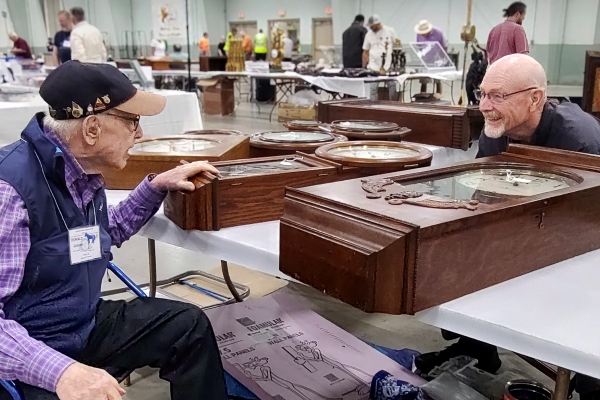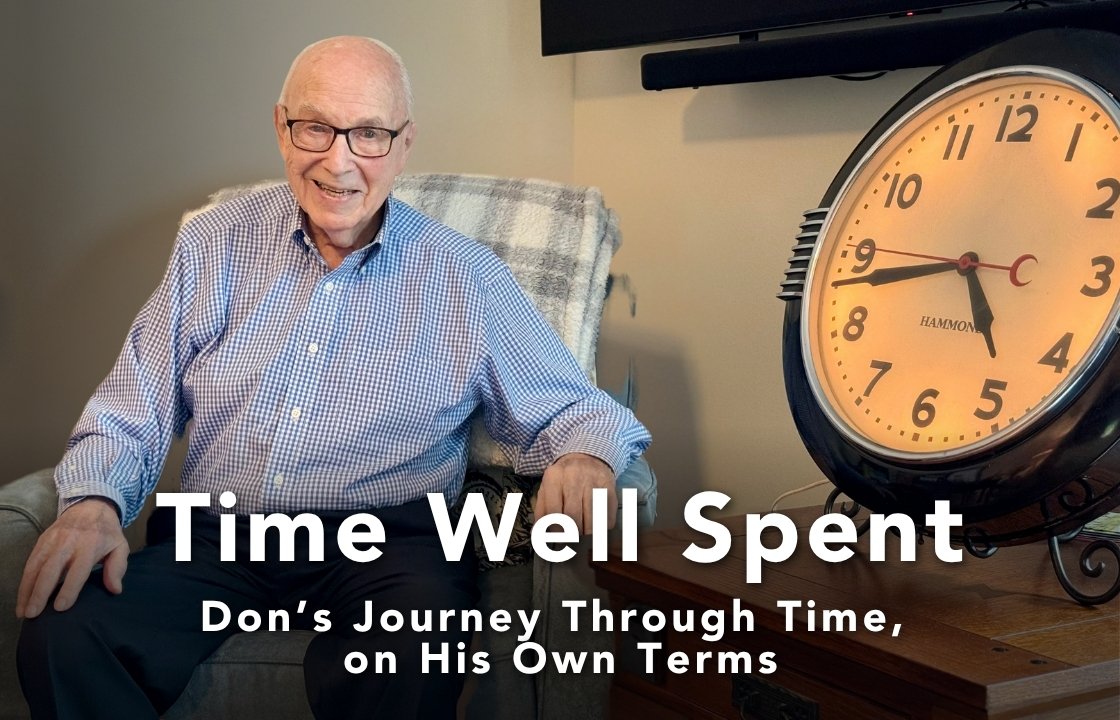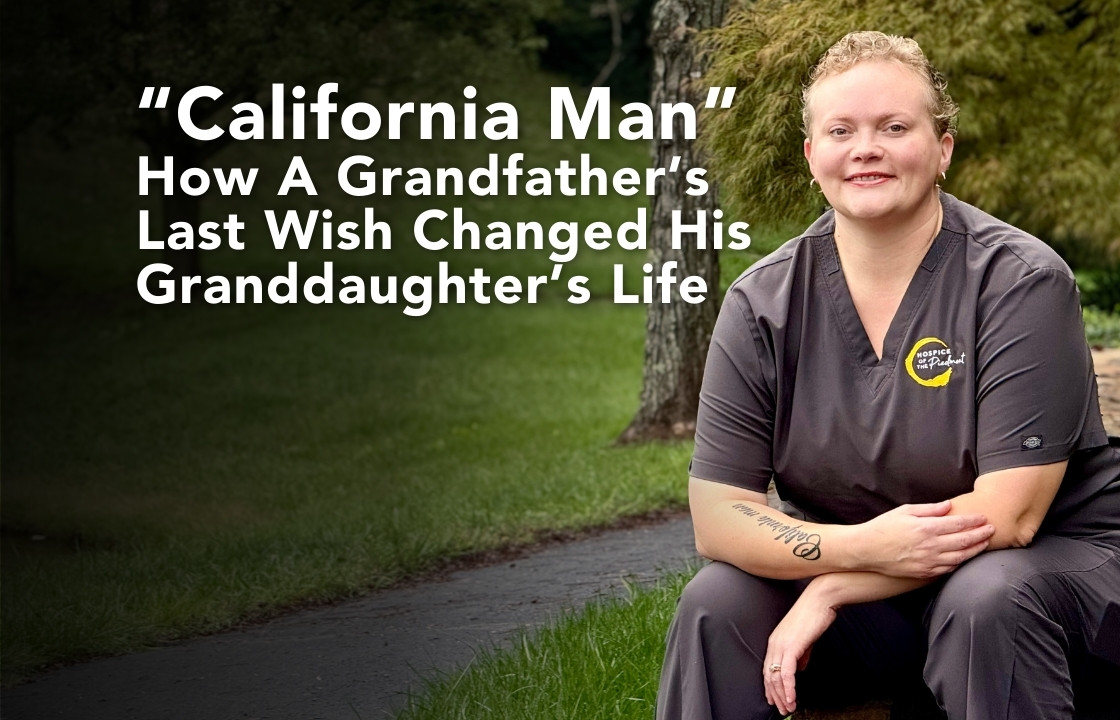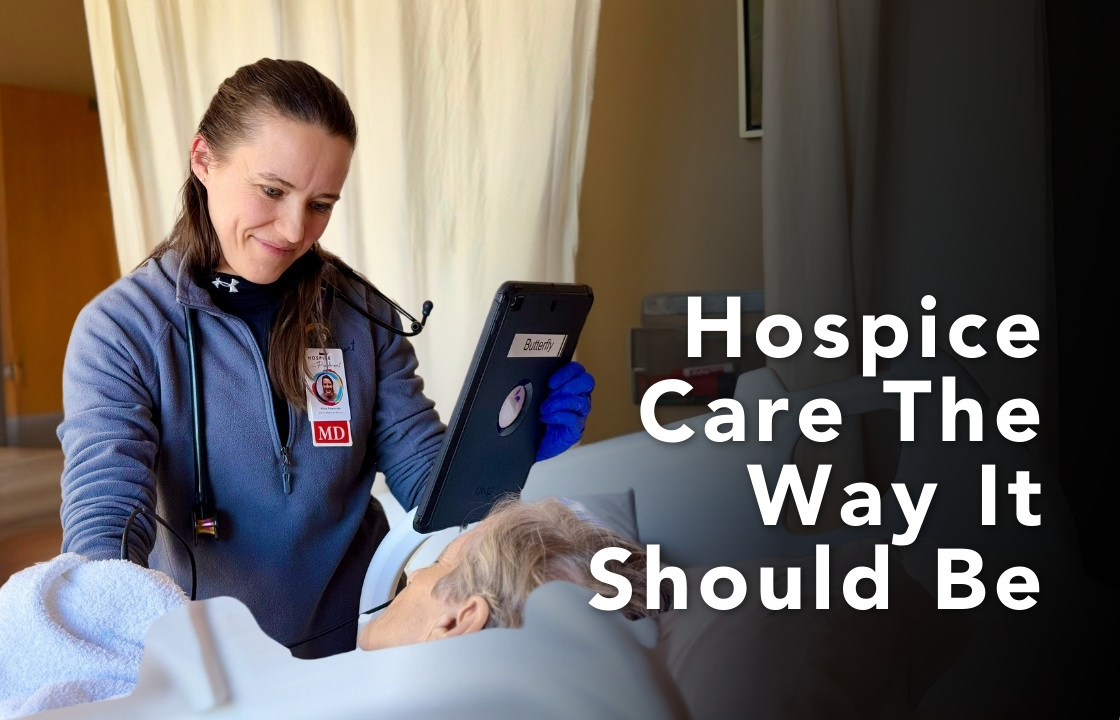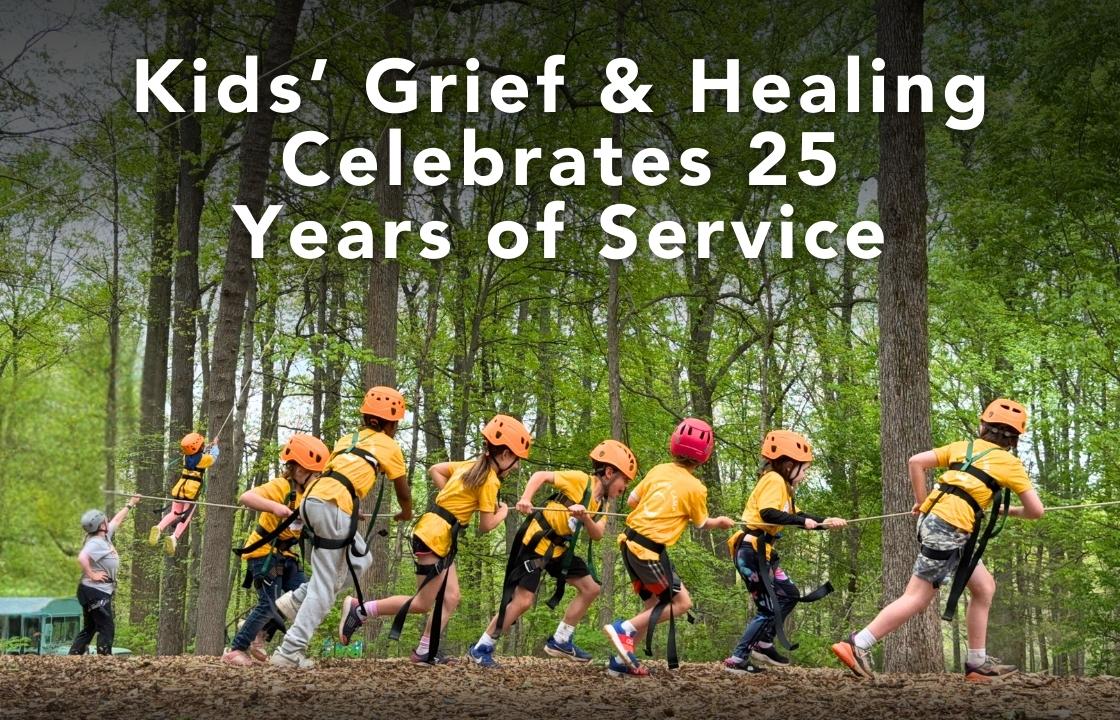“I thought hospice meant a few days, and that’s it,” Don said. “I never realized it could be like this.”
That realization—quiet, almost offhand—tells you everything you need to know about Don.
At 97 years old, he’s packing for his second out-of-state trip since enrolling in hospice care. He’s not going for treatment. He’s not going to say goodbye. He’s headed to the National Association of Watch & Clock Collectors’ annual convention in York, Pennsylvania.
Kathryn, his hospice social worker, has been helping Don prepare for the trip. She’s loved getting to know him, especially his good-natured sense of humor. She recalls their first meeting, when Don offered one of his trademark quips: “A woman like you makes me feel like I’m in my 70s.”
“I’ll carry that with me forever,” she said, laughing.
At the age of 97, while receiving hospice care, Don is still traveling. Still telling jokes. Still making time for the things he loves.
A Passion Found Later in Life
Don didn’t grow up with a fascination for clocks. That came later, unexpectedly, and all at once.
He was in his 40s when he and his wife visited a friend who had just bought a new home. Near the back door sat a pile of items the homeowner planned to throw away. On top was a porcelain wall clock.
“I asked if she was really going to get rid of it,” Don said. “She told me I could take it. So, I did.”
He worked on it, got it running, and quickly fell in love with the mechanics of clock repair. Not long after, he joined the National Association of Watch & Clock Collectors, a group he’s been part of since 1971.
When he was starting out, he partnered with a neighborhood lamp shop in Hyde Park, Chicago. People would drop off clocks, and he’d take them home to figure out how to fix them. If one stumped him, he’d bring it to a shop across town where a more experienced repairman walked him through the problem.
Back then, it was just a hobby. Today, we might call it a side hustle.
When he retired from his career in sales, Don opened two clock shops—Prime Time and The Old Timer. And yes, the world of horology is full of puns.
Passing on the Skill
Don worked on every kind of mechanical clock imaginable. “Grandfather clocks, cuckoo clocks, electric clocks. People didn’t just bring clocks, they brought stories. ‘This belonged to my parents,’ or ‘I had this when I was a kid.’ They wanted to hear them tick again,” he said.
One day, a woman came into his shop and said her 12-year-old son had a gift for mechanical things. Don was skeptical.
“I said, I don’t know—twelve years old? But he came in. And this kid, Kevin, is an absolute mechanical genius.”
With some guidance, Kevin was soon tackling repairs that stumped others. He’s in his 40s now, but still visits Don from time to time. “If I’ve got a clock that needs work, I let him handle it,” Don said.
“I’ve always tried to pass along what I could.”
A Dying Art
“Younger people today are not interested in clocks,” Don said. Not complaining—just observing. “When you go to a clock show, all you see are bald-headed, gray-haired guys like me. It’s a dying art.”
“Everybody used to aspire to have a grandfather clock. We sold like a hundred a year. And now they just don’t sell them anymore. You don’t find stores carrying large displays. People just aren’t interested.”
Yet once a year, the joy of clocks springs to life at the NAWCC National Convention—the hobby’s biggest gathering.
“They bring a lot of clocks. I go to see friends,” he said. “I’m not in the market to buy any more clocks, but I love seeing them.”
A Different Kind of Care
Don had a heart attack, and, for a time, things looked grim. He imagined hospice as a place where people went in their final days. A few visits, some pain medication, and that would be it.
But that wasn’t the case.
“I’m not in pain. I still enjoy life,” he said. “I thought I’d be here a week or two. But I’m still here. Still going.”
Don jokes about his longevity now. “I’d like to pull a Jimmy Carter,” he said, referencing the former president’s long hospice journey.
When he enrolled in care with Hospice of the Piedmont, Don had one request: he wanted to keep attending clock shows.
“At first, we weren’t sure he’d be up for it,” said Kathryn, his social worker. “But he started feeling better. And once his son Larry and his friend Patty were on board to help with the travel, we said, ‘If this is what you want to do, let’s do it.’”
Kathryn admits she wasn’t sure it would work out. “Even if he felt awful, I think Don would still go,” she said. “And honestly, that’s the point. He knew what mattered to him—and we wanted to help him do it.”
Hospice on the Road
To support Don’s wish to travel, Hospice of the Piedmont arranged a hospice travel contract. That means a local hospice near the convention site is on call, ready to assist if needed.
“If Don starts to feel unwell in York, someone can come to his hotel and assess him,” Kathryn explained. “He doesn’t want to go to a hospital emergency room, and this allows him to get care and make informed decisions without leaving his room.”
For Don, that peace of mind makes all the difference.
“I don’t care if I’m in Pennsylvania,” he said. “I don’t want to go to the hospital.”
The hospice travel contract allows Don to keep doing what he loves, on his own terms. And when he returns home, he’ll seamless transition back onto HOP’s care.
Still Ticking
Don made his first trip under hospice care earlier this year, attending a show in Wilmington, Ohio. He was joined by his son and Patty, who often drives him to events. They browsed tailgates full of antique clocks and caught up with old friends.
Today, he’s getting ready for the national convention. He’s not in the market for new clocks—there’s barely room for the ones he owns. Still, he admits, “I’ve already been warned: don’t buy any more. The car’s too small.”
Don’s favorite is a 1940 Hammond art deco wall clock, lit from behind with a circle of bulbs (pictured above).
“The thing about Hammond clocks,” he said, “is they’re not self-starting. If the power goes out, you have to restart them.”
In a way, the same could be said for Don. His ticker may have faltered, but thanks to hospice care—and the pull of a good clock show—he’s found his rhythm again.
He doesn’t take the time for granted. “Sure, I wonder sometimes—when I have a new ache—‘Is this it?’” he said. “But I’ve had a good life. And I’m still here.”
“Going to these events just means everything. I think that’s what keeps me living.”
And as for the future?
“I’m going to sign up for next year’s national show in Lexington, Kentucky,” he said. “I just keep saying—I’m signing up for next year.”
—
Epilogue
We’re please to report that Dan made it to the show and had a marvelous time.
